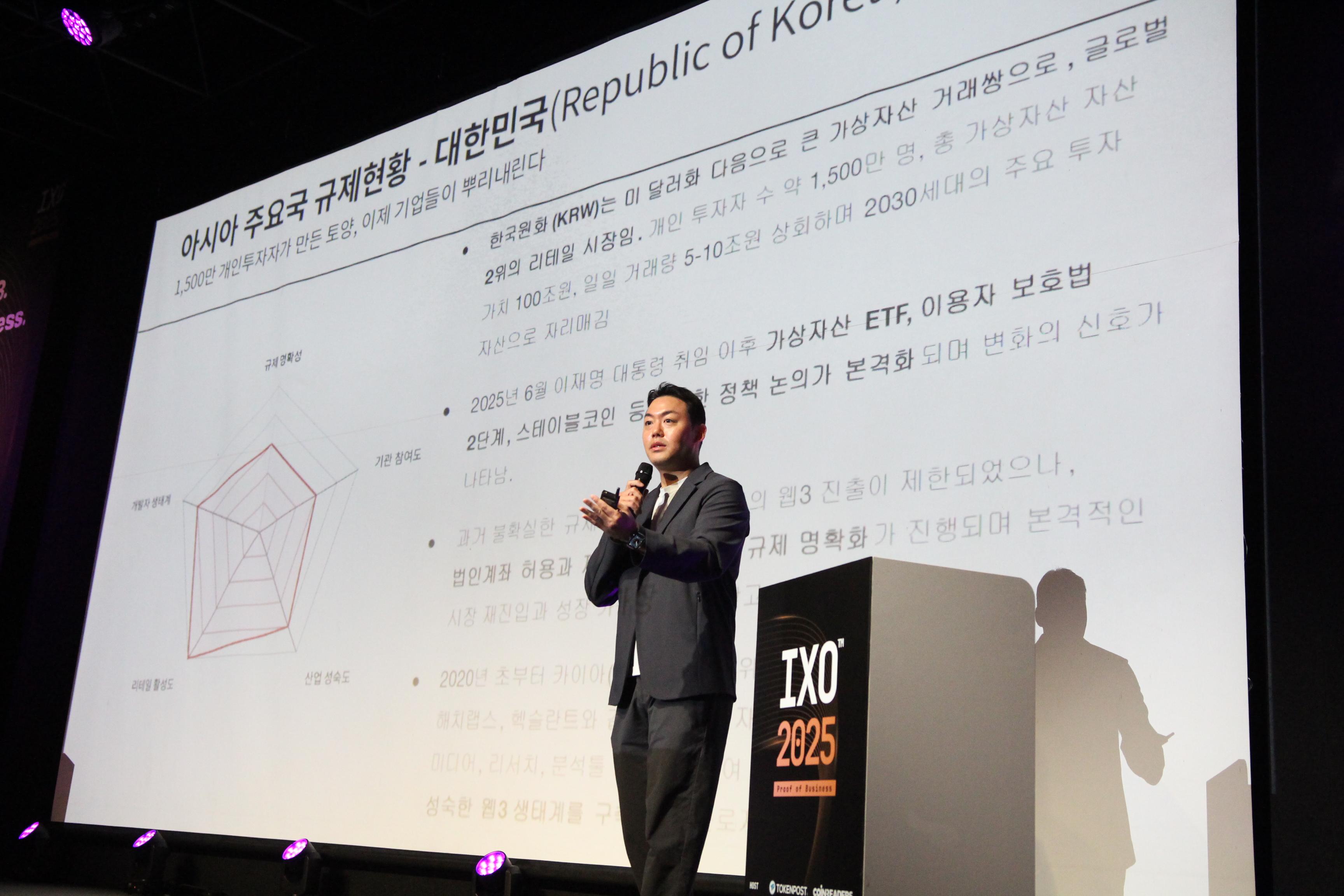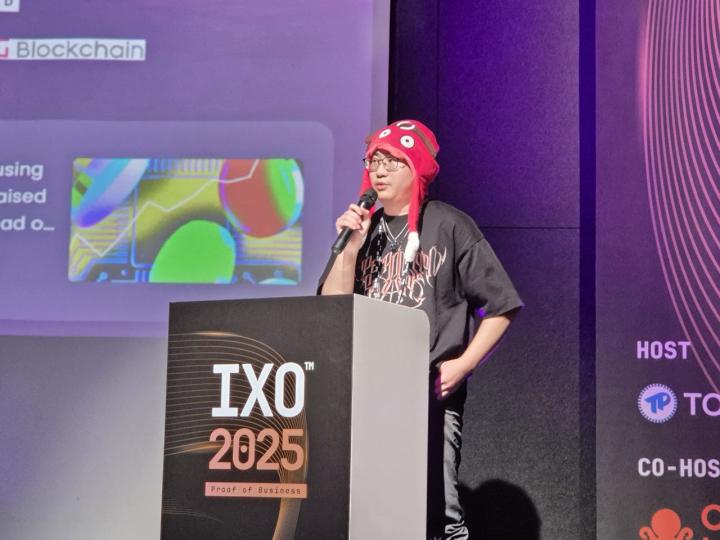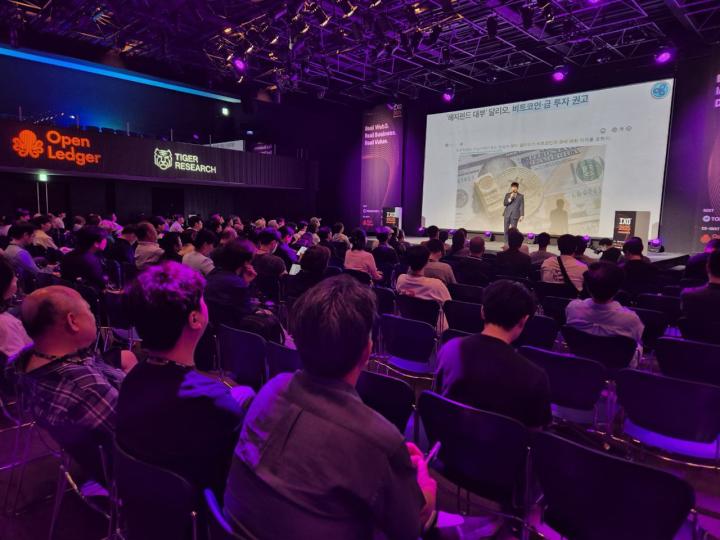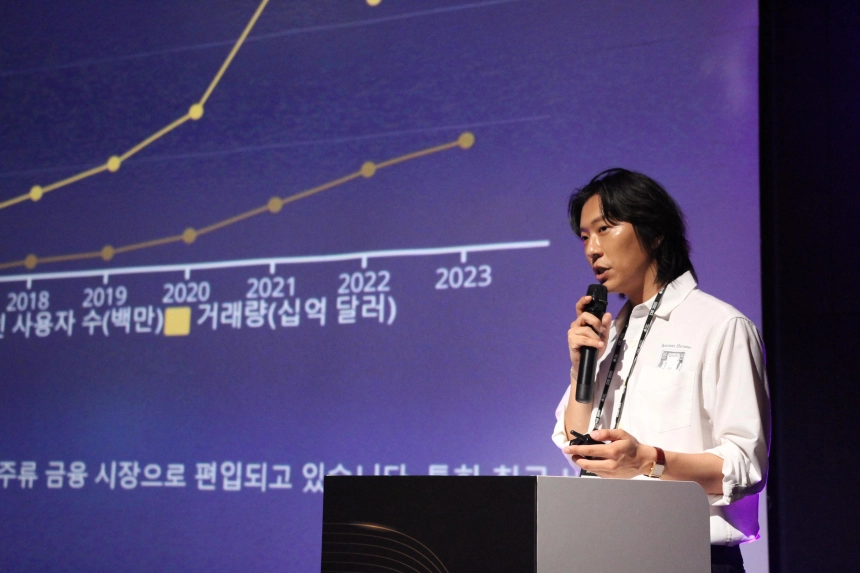The Asian market, which accounts for 60% of global virtual asset transactions, is accelerating its growth amid policy changes and market restructuring.
Daniel Kim, CEO of Tiger Research, gave a lecture on the 'Current Status of Digital Asset Markets in Major Asian Countries' at the Global Web3 Roadshow 'IXO™ Season 3' held at the Seoul Textile Center on the 25th, stating that "the Asian market is complex and difficult to access, but it is a key market where 60% of global virtual asset transactions and workforce are concentrated," and analyzed the market changes and strategies of major countries.
He explained that "there are about 320 million crypto users and 50 million developers in Asia, divided into 6 cultural spheres and 48 regulatory areas, making it a market with high entry barriers." He added that "Tiger Research analyzes each market based on five indicators: regulatory clarity, institutional entry, industry maturity, retail activity, and developer ecosystem."
Regarding the Korean market, he said, "There are about 15 million virtual asset investors in Korea, making it one of the world's largest retail markets excluding the United States," and "domestic exchanges hold assets of about 100 trillion won, with daily trading volumes ranging from 5 to 20 trillion won, and there were times when trading volumes were higher than KOSPI and KOSDAQ."
He further diagnosed that "Korea is rapidly growing from a retail-based market to an institutional and regulatory area, and the domestic development-based ecosystem, including Klaytn, WeMix, Decent, Hashed Labs, and Hacks Lant, is highly competitive."
Regarding the Japanese market, he said it is "at the starting stage after a long preparation period" and "while retail growth is slow due to past large exchange hacking and strict regulations and tax laws, the government is promoting policy changes through a Web3 white paper and the appointment of a digital minister."
He also introduced that "Japan's ecosystem is developing centered on large corporations and financial institutions like Sony, Mizuho, and SBI, and SDI has received Japan's first trust-type stablecoin license, preparing for the circulation of yen-based stablecoins."
Regarding the Hong Kong market, he explained that it was "traditionally a bridgehead connecting China and the West, and currently has active experimental virtual asset activities with stablecoin sandbox programs and Bitcoin ETF launches." He added that "over 270 Web3 projects are receiving government agency support, and infrastructure based on Chinese capital and users like Animoca Brands is growing rapidly."
He assessed that "while the ecosystem centered on large exchanges is limited due to domestic market constraints and regulatory intensity, the role as a bridgehead targeting Chinese capital and users remains valid."
Regarding the Singapore market, he said, "It was a major Token issuance site in Asia since 2020, but regulations were significantly strengthened with the implementation of the DPSP (Digital Token Service Provider) law in June 2025." He further diagnosed that "without a DPSP license, providing services abroad is impossible, and even individual remote workers are subject to regulation, significantly impacting local businesses."
He also explained that "Singapore's MAS intends to resolve the Optus Mask system issue in accordance with FATF recommendations, and the market will be reorganized around legitimate businesses in the future." He emphasized that "stablecoin and real asset tokenization businesses still prefer Singapore as a base, and it remains a valid market for companies seeking to pursue business targeting regulation-friendly financial institutions."

Regarding the Vietnamese market, he explained that "until now, Vietnamese financial authorities did not recognize virtual assets, and centralized exchanges could not exist, so virtual asset transactions were conducted through Binance P2P or peer-to-peer trading platforms."
He continued, "Changes began this year, with the government-officially certified Vietnam Blockchain Association (VBA) launching, and discussions about establishing a centralized exchange starting around the VBA," adding that "global exchanges like KX and Bybit are currently showing interest."
He also explained that "while there are no exchanges, the Vietnamese DeFi ecosystem is very active, and local developers are actively pursuing new projects following the success of Axie Infinity."
Regarding the Indonesian market, he said, "As the fourth most populous country in the world and a representative Southeast Asian country, the enthusiasm for virtual asset investment is very high." He diagnosed that "Indonesia has more clearly established regulations compared to other Southeast Asian countries, and recently, the supervision of virtual assets has been transferred from the futures supervisory agency to the financial supervisory agency, developing a system to track it as a securities-type asset."
He added, "As the world's largest producer of nickel, palm oil, and coal, Indonesia shows high interest in commodity tokenization and derivative product development." He also emphasized that the number of registered users on Indonesian virtual asset exchanges has already exceeded the number of registered users on stock exchanges.
He also assessed that "the most leading virtual asset-friendly country recently is the UAE." He explained that three emirates of Abu Dhabi, Dubai, and Ras Al Khaimah operate clear and friendly regulations, and many global foundations and talents are being drawn based on oil-based capital.
He added, "The UAE is likely to maintain its leading Web3 country status in the next 1-2 years, and Saudi Arabia is also showing strong interest."
Finally, he said, "The virtual asset and Web3 ecosystems of major Asian countries are changing rapidly," and "I hope people refer to the current situation of each country when expanding overseas or investing."
'IXO™ Season 3' is a Web3 conference focused on 'investment practice', held at the Seoul Textile Center for two days on the 24th (Tuesday) and 25th (Wednesday). The event was co-hosted by blockchain media TokenPost and CoinLeaders, and co-organized by the decentralized data trust protocol 'OpenLedger'.
IXO™ goes beyond the existing ICO, IEO, and IDO methods, presenting a more Web3-friendly and community-centric fundraising concept. Last April, the first event attracted over 1,000 participants, opening a new chapter in the Web3 community, and in July, it expanded this trend further through Season 2 with the theme 'Embrace the Future'.
The theme of this Season 3 is 'Proof of Business'. Beyond technological vision and marketing, it is designed as a practical Web3 conference that highlights only projects that have actually proven their real-world usability, profitability, and user base.
Domestic and international blockchain experts, DAO operators, practical investors, researchers, and traders will participate, providing effective insights from an investor's perspective. With project booths, custody demos, and networking, this B2C roadshow is expected to provide an opportunity for communities and individual investors to meet verified Web3 projects they can trust.
Registration for IXO™ Season 3 is possible through Lumalink. Real-time announcements and more details can be checked through the following social media channels.
IXO™ 2025 Official Channels
Website https://www.ixo.day
Twitter https://twitter.com/ixo_day
LinkedIn https://www.linkedin.com/showcase/ixoday
Get news in real-time...Go to TokenPost Telegram
<Copyright ⓒ TokenPost, Unauthorized Reproduction and Redistribution Prohibited>





